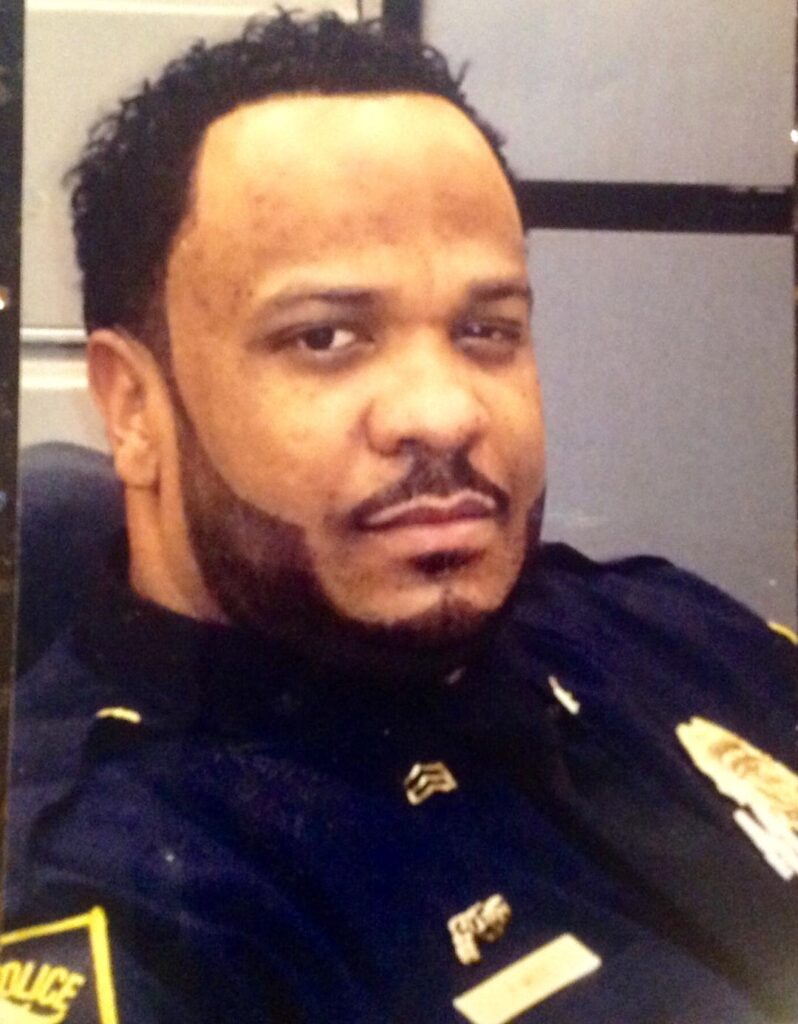News Analysis by Kent Ashworth
Hartford – Even the most righteous complainer can be told to turn down the volume and chill out: “You don’t have to make a federal case over it.” But sometimes you do. For example, after Lt. Paul West was passed over – over and over again – for promotions, he began to see his career hampered by what he alleges is a pattern of race-biased internal affairs practices.
As the only Black lieutenant now eligible for a Hartford Police Department (HPD) promotion to chief or captain, a federal civil rights case was indeed West’s answer. His U.S. District Court complaint August 19th charged six top Hartford police executives with conducting “a crusade” of race-based job discrimination against him since 2018.
No single claim in the court papers stands out more than the full litany, as this sampling of low-lights indicates:
While West was out of state in April 2018 attending a graduate program in police executive leadership, HPD higher ups began to restructure the Recruitment Division he had started and commanded for two years – without consulting him.
At this very same time (as West was away, becoming a Dean’s Scholar at the University of Louisville’s Southern Police Institute), the HPD called a Captain Promotional Exam, but then delayed his test results, costing him that promotion.
Back-and-forth decisions approving and then rescinding his use of sick time, vacation time, and earned leave were part of his hostile work environment, he alleges, in which the harassment included an unannounced visit to his hospital room and text message and phone call interruptions when he was hospitalized.
Applications he made for promotion to open positions were ignored.
On May 26, 2018, West witnessed an HPD police sergeant “engage in shockingly explicit, overt, and demeaning sexual harassment” against a female officer, Kelly Baerga, who brought a formal complaint two days later. West asked then-Chief David Rosado for a meeting to discuss it, was instructed to document it, and submitted a memo May 30, 2018 – but by that time he had been removed from his command of the Recruitment Division, without explanation.
HPD re-opened closed investigations against him – ones that had been cleared in the past – and also turned the tables by making a counter-complaint alleging that he had failed to report Officer Baerga’s sex harassment complaint. To this, Officer Baerga issued a statement that only West in the entire Command Staff “cared and tried to change the culture when Chief Jason Thody, Chief David Rosado, and Chief Rafael Medina sat idly by and took no action for nine months.”
In addition to the City, Thody, Medina, Deputy Chiefs Sonia Watson and Dustin Rendock, Captain Ian Powell, and Lieutenant Kevin O’Brien are named in the suit, which invokes federal civil rights protections against retaliation in the workplace.
Chief Thody did not respond to the Inquiring News request for comment.
Not receiving a response to an application or repeatedly being turned down for requested promotions began to truly concern him, Lt. West said in an interview, especially when he was being subjected to personal, public attacks at internal meetings as well as at an external training exercise.
According to his lawsuit, West was cursed and berated by HPD higher-ups during internal meetings, in the presence of colleagues, and was called out like a suspect at an external FBI training session, where colleagues from across the region who typically network over a cup of coffee and compare career paths instead saw West publicly pulled aside and confronted about disciplinary charges.
What had customarily served as a gathering useful for professional development instead became a staged confrontation that cast him as a bad actor, he recalled.
Is Pre-taliation a Thing?
West’s lawsuit – and the pending case in which he stood up for Baerga – demonstrate a pattern by which internal disciplinary charges effectively blocked his promotion through bureaucratic maneuvering – what might be called pre-taliation.
Unlike the familiar civil rights prohibition against workplace “retaliation,” this new word, “pre-taliation,” describes acts of bias that lead up to and effectively freeze a promotional opportunity, by giving authorities an excuse to deny job advancement.
In its treatment of West – its highest-ranking Black officer – the HPD put forth its own classic example of the “weaponization of the internal affairs process,” former Hartford Police Union President John Szewczyk said in an interview. “I’ve never seen anything like what was done to him in the past two years,” he reflected.
Szewczyk, who retired in July 2020 as an HPD sergeant after an 18-year career, has been continuing his work on police reform in connection with his 2019 appointment to the Connecticut General Assembly’s Task Force on Police Accountability & Transparency.
“In my opinion, the weaponization of Internal Affairs by the Hartford Police Department Command Staff against Lieutenant Paul West was absolutely reprehensible and grossly blatant,” Szewczyk said. “Accordingly, reforming internal affairs and giving the Attorney General’s Office the power to conduct patterns and practice investigations have been two topics that are currently being discussed by the Task Force.”
Szewczyk, who was Hartford Police Union President from 2017-2020, said in an interview that West is seen as unusually serious about his education and training – and
seemed even to be feared by the HPD hierarchy.
Indeed, he said, West stood out by developing a deep resume (adding to his Springfield College degree in Human Services by going to UConn and earning a master’s degree in Public Administration – and by doing the graduate certification work out-of-state).
The West saga raises a number of questions at the heart of the nation’s reckoning regarding racial injustice:
How prevalent are race-biased and retaliatory actions against minority officers, such as those alleged by West?
For the record, how many Black candidates for Hartford police chief or captain positions have successfully run the gauntlet to gain an appointment to that rank?
Have the goals for recruitment and retention of minority officers who fairly represent the people living in the city (established by the Cintron v. Vaughan consent decree) been met?
What do the West and Baerga cases reveal about the department’s commitment to minority recruitment and retention, given that the sexual harassment complaint and alleged internal affairs retaliation for it emerged from that very Recruitment Division?
How could pattern and practice investigations by the State Attorney General prevent the weaponization of internal affairs processes against career advancement by Black officers?
“As we try to provide and achieve equality, recognizing the need for education and training reform, we can’t extend external relief until we achieve internal relief,” West reflected in a recent interview. “Looking at the weaponization of internal affairs, keeping people oppressed, how do you become reflective of the community when you are systematically destroying the advancement opportunities for protected classes? These questions have to be answered.”


